Earlier in May, more than 20 NUS MBA students visited Tokyo, Osaka and Kyoto for the Japan Global Immersion Programme (GIP) 2019. This is the second GIP trip in the year where the first group visited London. Taking the lead for this trip were Japanese students, Shoichi Sakatani, Nami Nishimura and Ryuji Yamamoto. Knowing that interest in Japan was high in their cohort, they wanted to welcome their classmates to their home country, and share more about their culture and how working in Japan is like. The trio shared how they spearheaded this project:

Behind-the-scenes: NUS MBA’s Global Immersion Programme in Japan
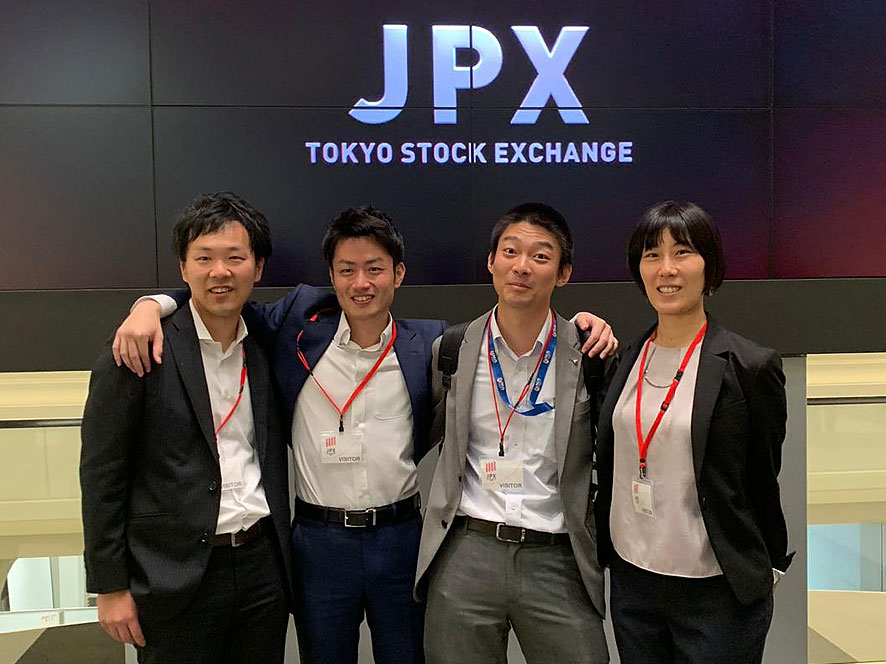
Winning the GIP pitch
For the first time, students could propose their own GIP plan and organise the whole trip if picked. We felt that while many people are quite familiar to Japan culture, some of the locations, services, etc. are extremely difficult to access for non-Japanese speakers. With this in mind, we were really excited about showcasing what Japan had to offer in the corporate world. We created an appealing movie to get buy-in from our classmates, and before we knew it, we won the pitch and started to make appointments with local companies, leveraging our personal connections.
Lead up to the trip
Besides shortlisting the different companies we wanted to visit, the greatest challenge was convincing the corporates to accept us due to confidentiality, capacity, time constraints, etc. on their end. It was especially challenging when one of our choice companies cancelled on us at the last minute, and we had to scramble to find a replacement on short notice.
Luckily for us, our final schedule was well balanced with a range of attractive organisations such as the Tokyo Stock Exchange, the third largest stock exchange in the world, Plug and Play Japan, an active venture capital and accelerator. Also, we managed to secure an appointment with TESSEI (that we learned about in our core operations class), a famous bullet train cleaning company as Ryuji was from JR East, their parent company.
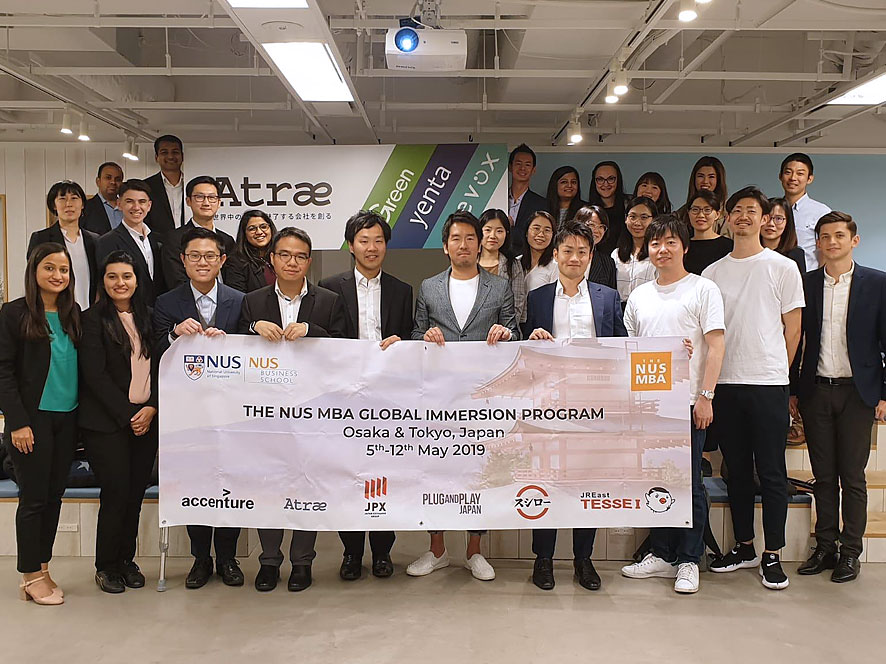
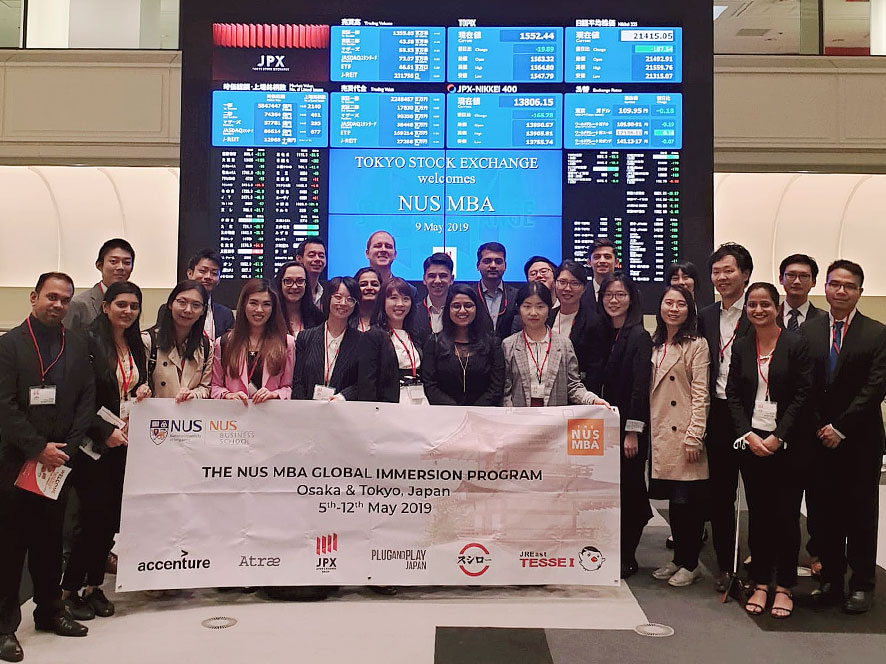
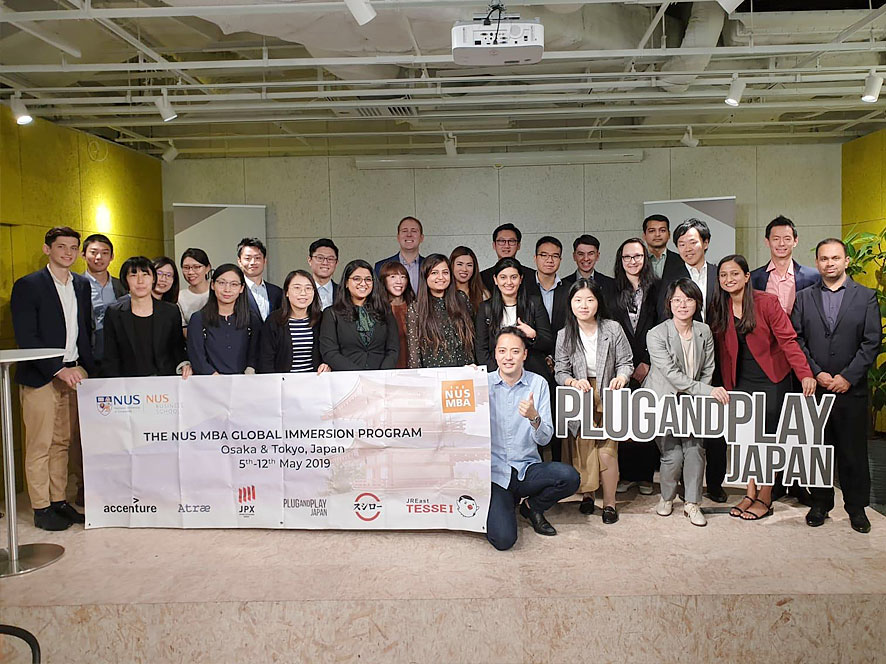
The delegation visited Atrae, the Tokyo Stock Exchange, Plug and Play Japan
We also got the participants of the trip involved! We held three meetings to discuss and finetune our plans together and appointed groups of students to research and share more information on each of the companies we were visiting. These really helped with formulating good questions and facilitated active discussions during the visits.
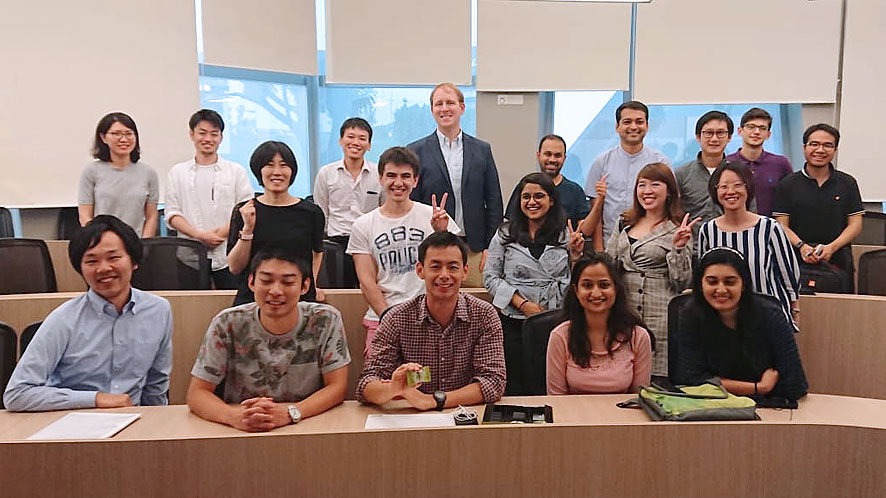
During the preparation, we also made sure to explain certain cultural differences from Western organisations: Most Japanese companies are more traditional and rigid in formalities especially when meeting C-suite executives. Behaviours like punctuality, usage of mobile phones and even bringing your own drinks while in a meeting were a definite no-no, right down to formal attire was expected as a sign of respect. With that in mind, we worked with the NUS MBA Culture and Language Club to organise a mini Japan Day to get everyone excited and stress the importance of certain requirements! One of our classmates Hiroyuki Ohtsu, conducted a short language session to teach simple Japanese phrases like Sumimasen (Excuse me) and Hajimemashite (Nice to meet you). Another classmate Daisuke Nishizaki , who is a Karate master even demonstrated some cool moves. He was also kind enough to join us in the first half of the trip, to assist in managing the participants as many of them were in Japan for the first time.
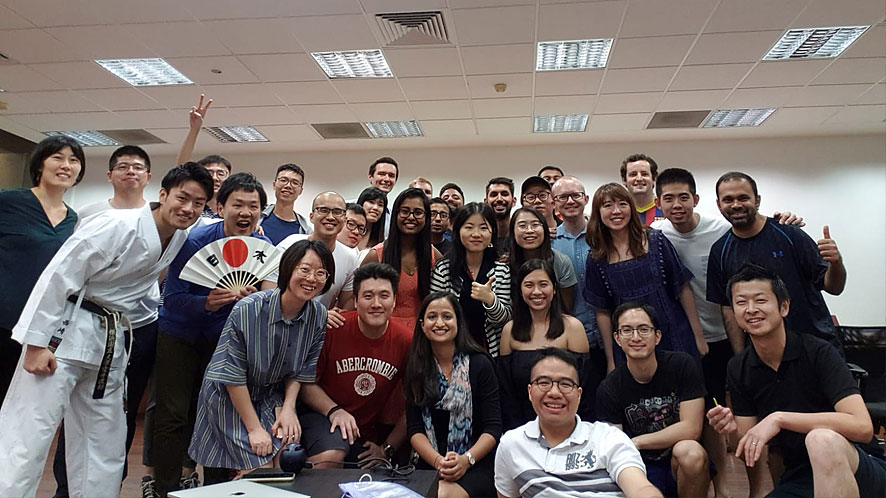
Memorable company visits
One of our favourite visits was to the Accenture Innovation Hub Tokyo. This space offered unique services for large corporations and start-ups to inspire innovation. During the tour, we had the chance to interact with several state-of-the-art prototypes and products, such as Qoobo, a fluffy-tailed cushion robot and a toilet timing prediction device called D-free. Our host Mr Sakaida, Senior Principle of Accenture Ventures and Mr Kanda, Senior Manager of Accenture’s Marketing and Communications, led an impromptu 30-seconds presentation by each of us to discuss major changes in the healthcare and logistics industries through digitalisation, last one-mile delivery of service and potential disruptions and changes that might happen in the next five to 10 years. This was definitely one of the most thrilling sessions among all the company visits.
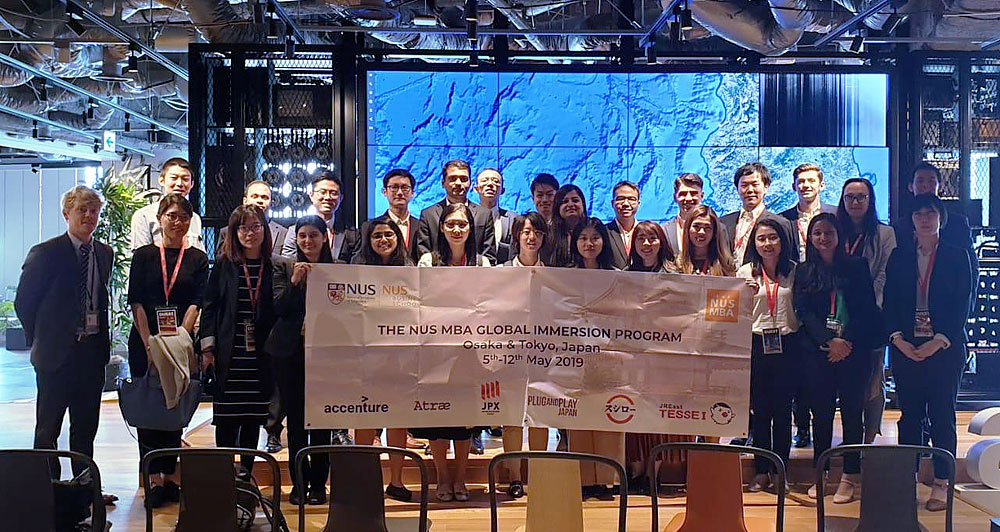
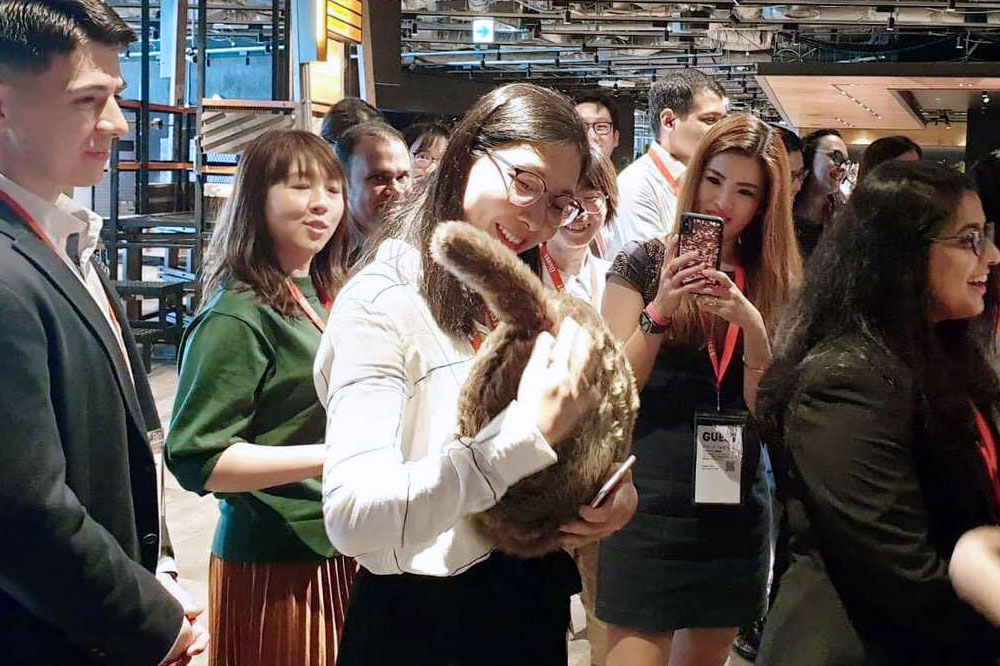
Next, we also visited Sushiro, a top sushi restaurant chain in Japan. Despite being a Food and Beverage company, we learned how they combine human expertise with technology to provide fresh sushi to customers. At their outlets, the conveyor belts are managed by electronic tags to inform the kitchen of the freshness and sales of the food. This was complemented by Sushiro’s generosity by inviting us to their restaurant for a “free-flow sushi” meal. Not only was the food amazing, but we could also witness the end-to-end implementation of their business processes.
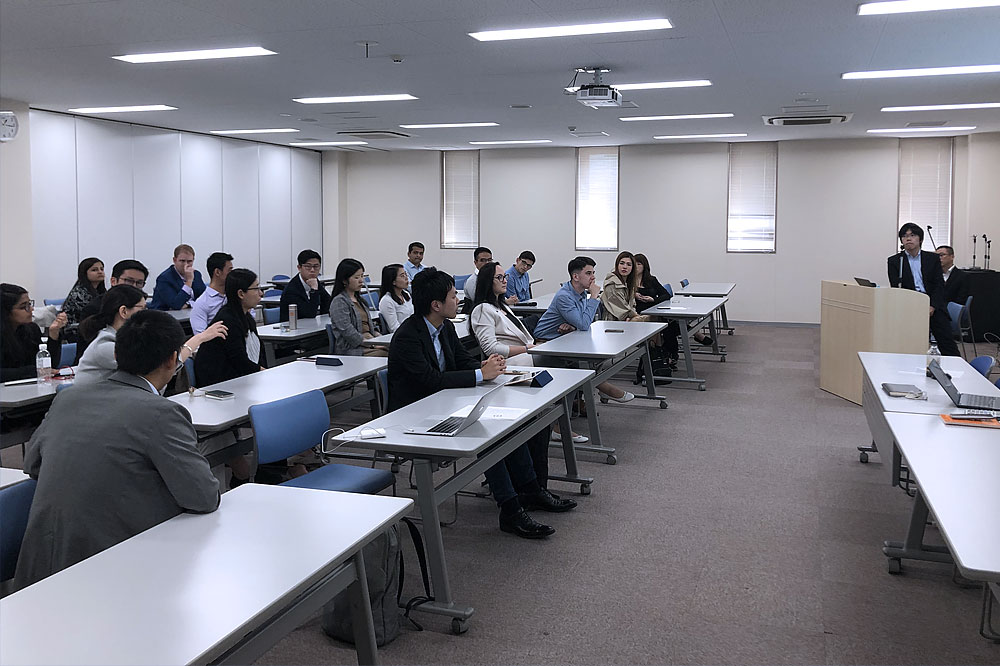
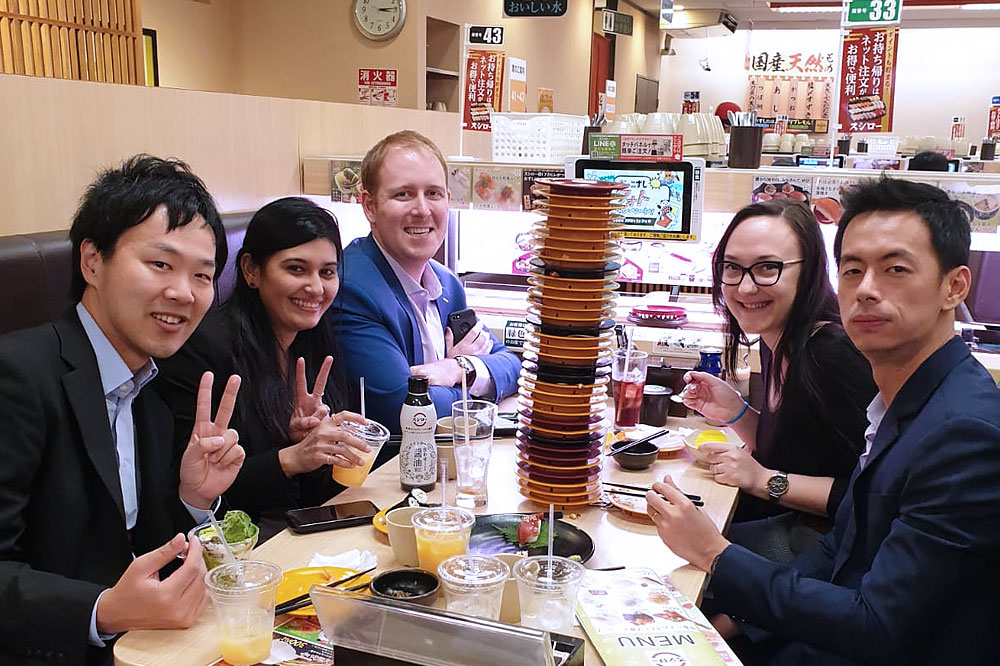
Left: Talk at Sushiro
Right: Feasting at one of Sushiro’s outlets
Cultural experiences
We weaved in time for participants to experience Japan’s unique culture. In Tokyo, we visited Sensoji Temple at Asakusa where we explained how locals believe that by covering their bodies with smoke, individuals can pray for healing of illness and injuries. Some classmates also had a chance to sit through an authentic traditional tea ceremony.
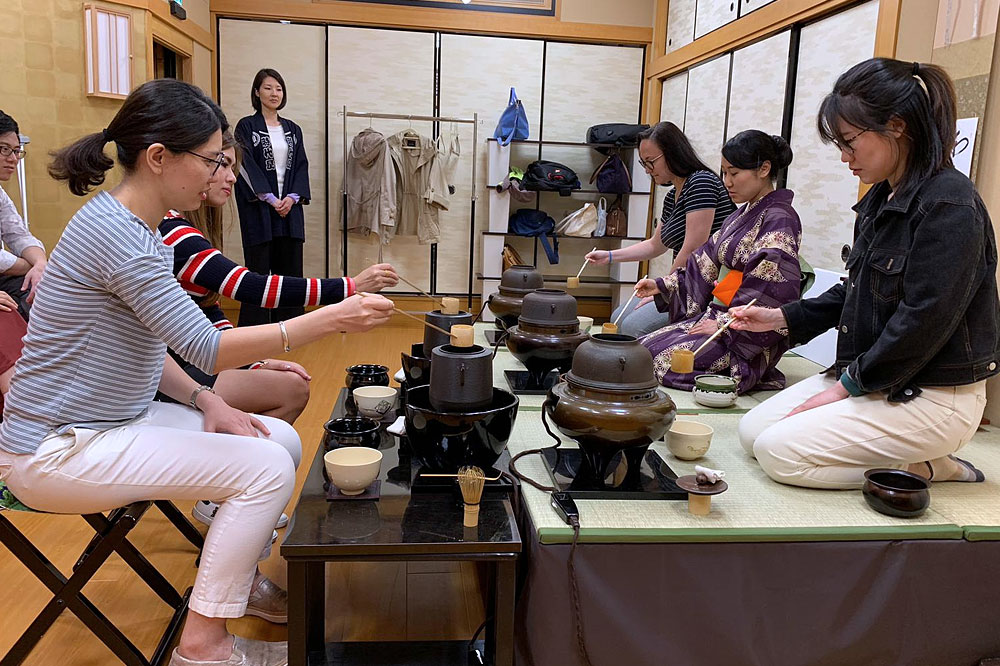
One of the key highlights was getting on a Yakatabune, a kind of privately owned Japanese boat for an evening cruise on Tokyo Bay and dinner.
While in Kyoto, besides enjoying the popular sights of the temples, shrines and gardens, we also had fun donning the Kimono, the Japanese traditional dress and walked through the city’s famed narrow lanes surrounded by traditional wooden houses.
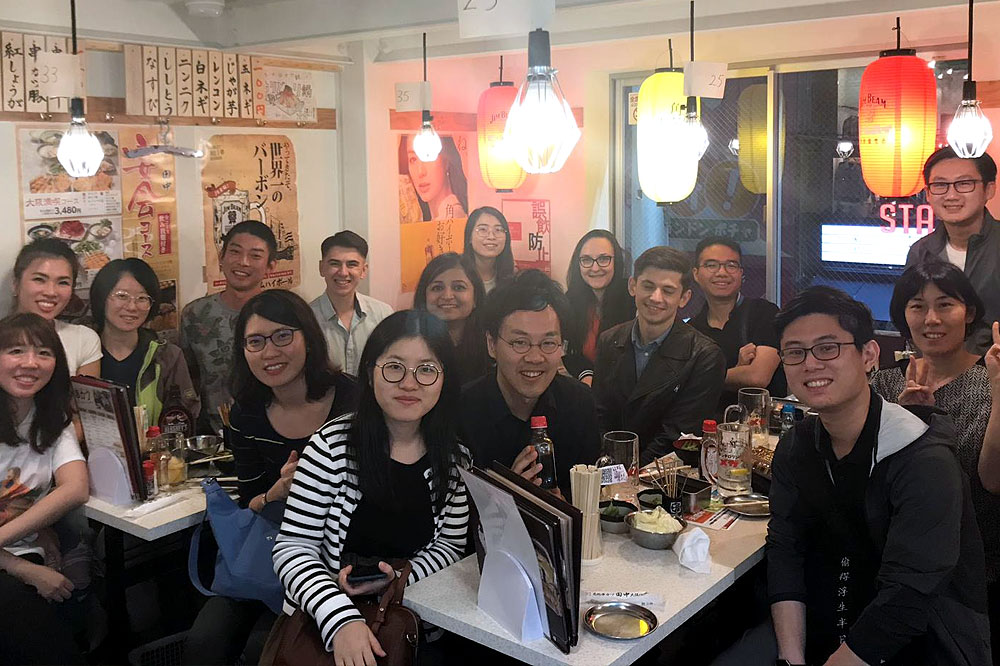
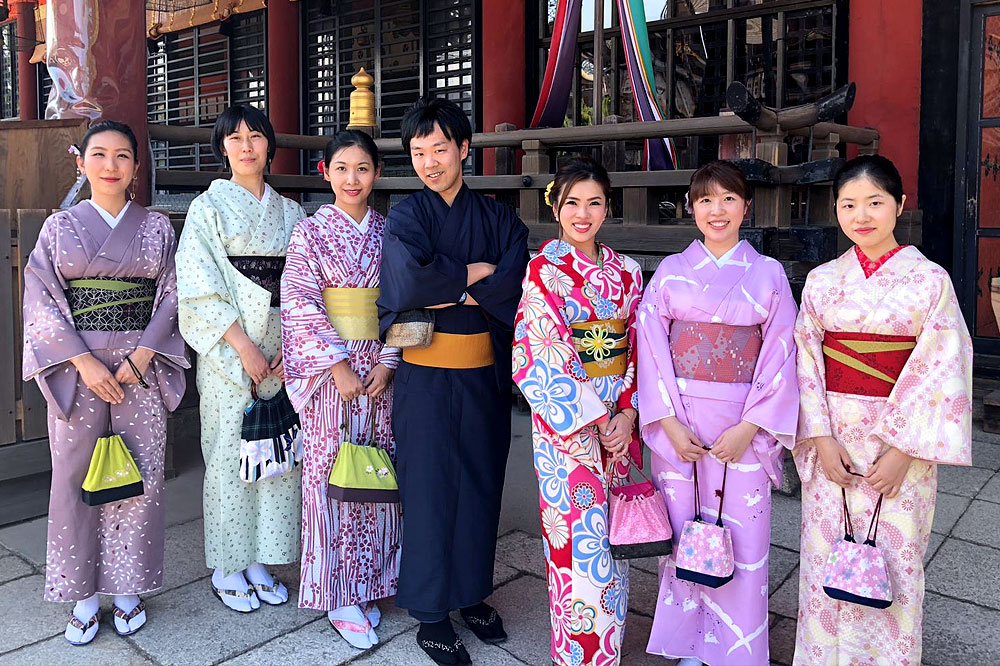
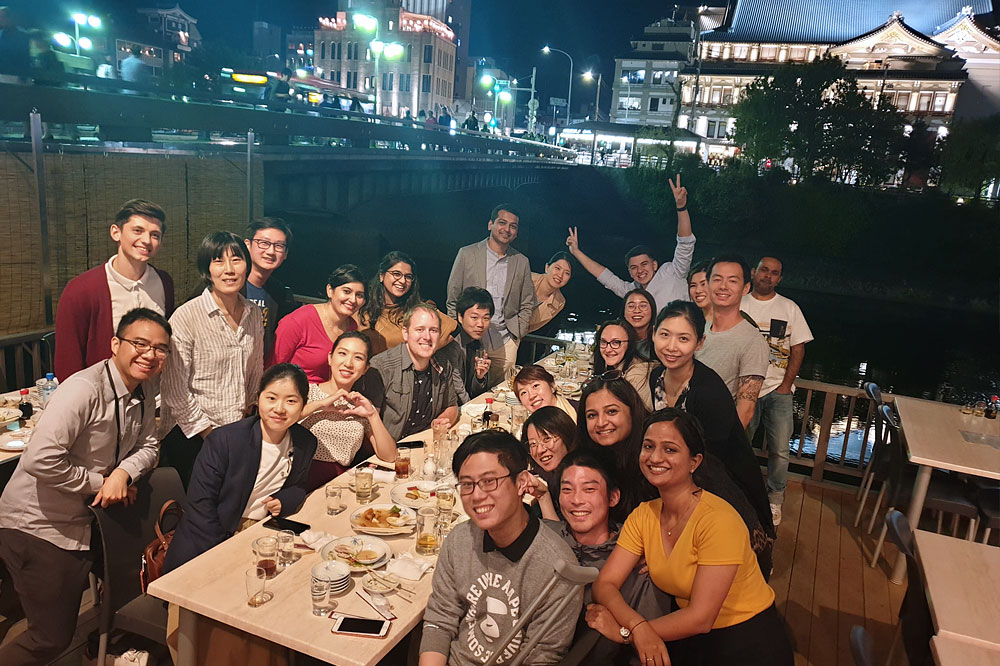
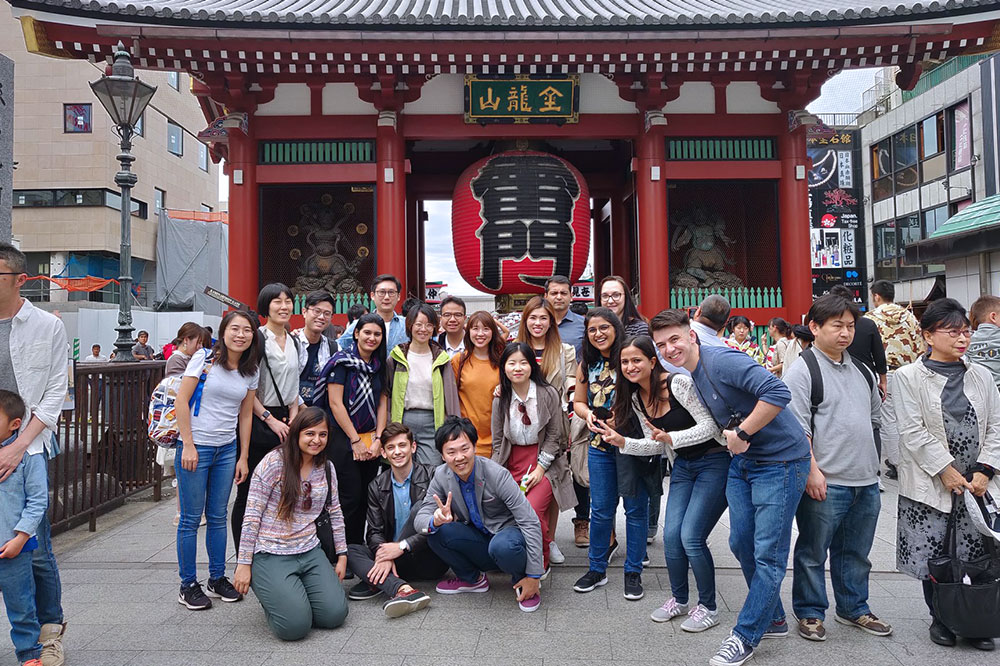
Eating at an Izakaya and visting Sensoji Temple
Taking the Japanese bullet train, Shinkansen was also quite nerve-racking as we kept having to remind our classmates that the trains left on time and nobody could be late, otherwise they would get left behind. Of course, it all worked out fine, and we all safely arrived together.
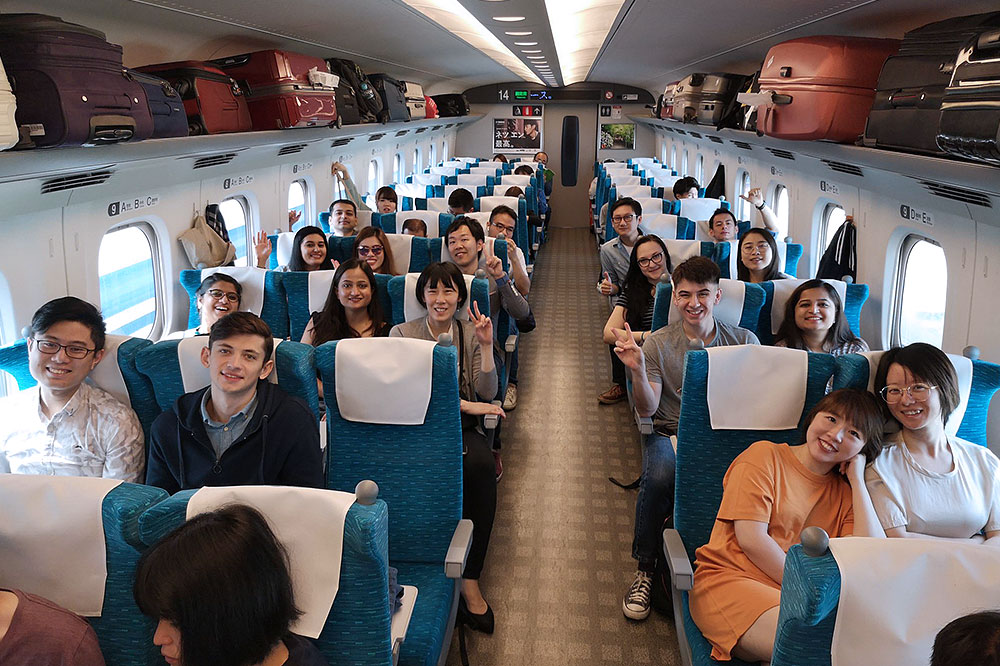
The final touch was meeting up with NUS alumni in Tokyo during one of the networking sessions. Their personal stories provided a good way to showcase the different aspects of work and lifestyle cultures of our home country. Hopefully, there would be opportunities for some classmates to consider a work opportunity in Japan after graduation.
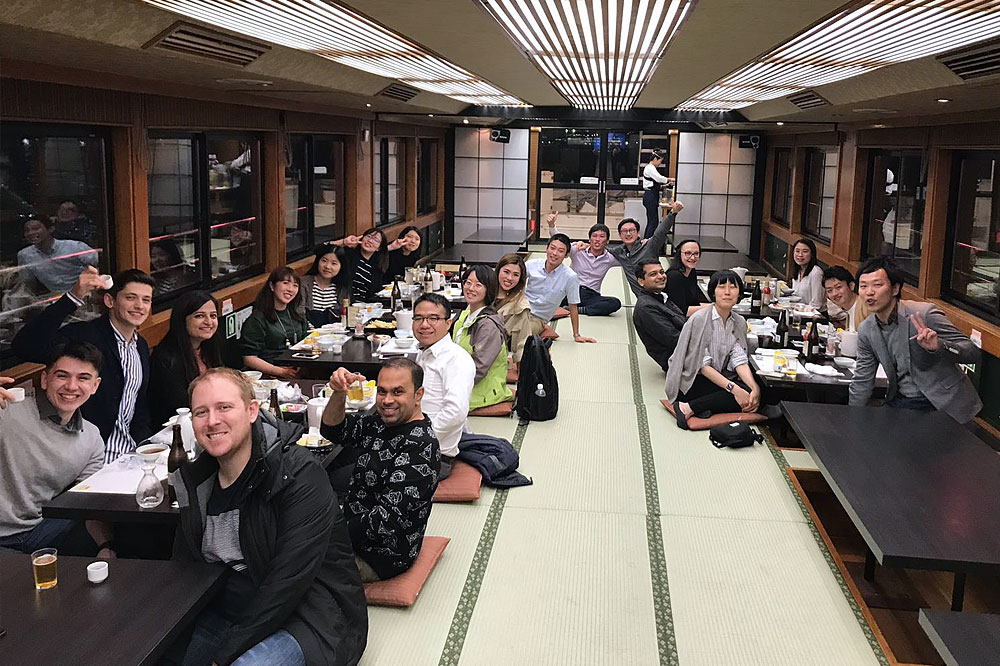
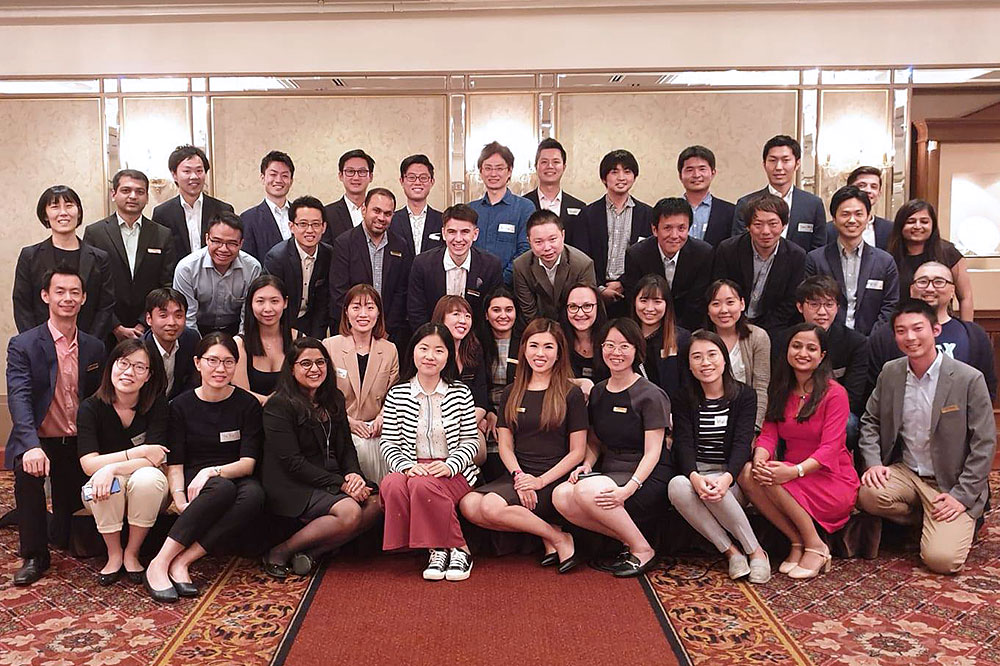
Catching up with NUS alumni based in Japan
To find out more about our NUS MBA programme, please visit https://mba.nus.edu.sg.



